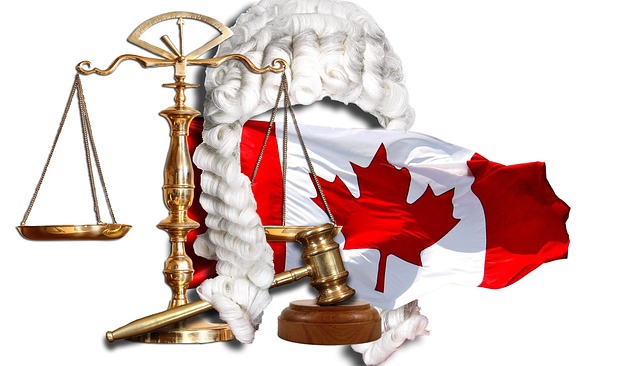The text explains the vital distinction between appeals and post-conviction relief within criminal law enforcement, essential knowledge for legal professionals. While appeals challenge guilt or sentence during a specified timeframe, focusing on trial errors like evidence admission, post-conviction relief addresses issues arising after conviction, such as new evidence or ineffective counsel, offering a broader scope to correct miscarriages of justice beyond the initial trial stage. Understanding these differences is key for secure outcomes in white-collar cases and other criminal proceedings.
Criminal law enforcement is a complex web of processes designed to uphold justice. Understanding these mechanisms, particularly the distinction between appeals and post-conviction relief, is crucial for accused persons navigating their legal rights. This article provides an in-depth overview of these two critical components of criminal justice. We explore how appeals challenge conviction while post-conviction relief offers avenues for relief after a final judgment, highlighting key differences between these essential processes.
- Understanding Criminal Law Enforcement: An Overview
- The Process of Appeal: Rights and Procedures for Accused Persons
- Post-Conviction Relief: Exploring Options After a Conviction
- Key Differences Between Appeal and Post-Conviction Relief
Understanding Criminal Law Enforcement: An Overview
Criminal law enforcement is a complex system designed to protect society by upholding justice and ensuring public safety. It involves a series of processes, from investigation and prosecution to sentencing and rehabilitation. Understanding this intricate web is crucial for both legal professionals and the general public. At its core, criminal law focuses on defining and punishing criminal behaviour while providing avenues for appeal and post-conviction relief.
While many individuals are familiar with the concept of appeal, it’s essential to differentiate it from post-conviction relief. Appeal is a process where convicted parties challenge their guilt or sentence, aiming for a reversal or modification. On the other hand, post-conviction relief refers to remedies available after a valid conviction, often focusing on issues not previously raised, such as ineffective assistance of counsel or new evidence. Achieving extraordinary results in these areas can significantly impact an individual’s respective business and overall justice.
The Process of Appeal: Rights and Procedures for Accused Persons
The process of appeal offers accused persons a crucial avenue to challenge their convictions and seek justice. This right is inherent in the principle of due process, ensuring that individuals can mount a defense against allegations and ensure fairness within the criminal justice system. An appeal differs from post-conviction relief in its timing and scope. While post-conviction relief often involves claims of ineffective assistance of counsel or new evidence uncovered after trial, an appeal centers on errors committed during the trial itself.
For those involved in white collar defense or general criminal cases, understanding this distinction is vital for achieving extraordinary results. Accused persons must file a notice of appeal within a specified timeframe, typically stating the grounds for review. This process involves meticulous legal analysis and documentation to present a compelling case before a higher court, aiming to reverse or modify the original judgment.
Post-Conviction Relief: Exploring Options After a Conviction
After a conviction, individuals often explore avenues for post-conviction relief, seeking to undo or modify their sentence. This is where the distinction between an appeal and post-conviction relief becomes crucial. An appeal is typically the first step, challenging the initial decision made during the trial stage, focusing on errors in the proceedings that may have affected the outcome. On the other hand, post-conviction relief involves a more comprehensive process, allowing for challenges based on issues that arose after the conviction, such as new evidence or changes in the law.
For corporate and individual clients alike, achieving extraordinary results in these cases demands meticulous attention to detail at every stage of the investigative and enforcement process. While appeals focus on procedural errors, post-conviction relief delves into broader grounds for relief, ensuring that justice is served even beyond the initial trial stages. This nuanced approach is essential in navigating the complexities of criminal law enforcement, providing opportunities for those wrongfully convicted to seek vindication.
Key Differences Between Appeal and Post-Conviction Relief
In the realm of criminal law enforcement, understanding the nuances between an appeal and post-conviction relief is paramount for both legal professionals and those affected by criminal proceedings. While both avenues seek to rectify potential miscarriages of justice, they operate at distinct stages of the investigative and enforcement process. An appeal typically focuses on reviewing the procedural aspects of a trial, such as errors in evidence admission or jury instructions, aiming to overturn or modify an existing conviction. This process is usually undertaken within a specific timeframe after the original ruling.
In contrast, post-conviction relief delves deeper into issues that may not have been fully addressed during the initial trial. It provides a chance to examine new evidence, claim ineffective assistance of counsel, or argue against harsh sentencing. Unlike appeals, which primarily target procedural errors, post-conviction relief can consider claims arising from all stages of the investigative and enforcement process. This is particularly relevant for corporate and individual clients alike, offering an unprecedented track record of securing justice where it may have been previously denied.
In conclusion, understanding both the appeal process and post-conviction relief options is crucial for anyone navigating criminal law enforcement. While appeals focus on challenging the initial trial and verdict, post-conviction relief provides a pathway to review convictions based on new evidence or changes in the law. Knowing the distinct procedures and rights associated with each ensures that accused persons can effectively seek justice and potentially achieve a fair outcome, highlighting the vital differences between appeal and post-conviction relief.






